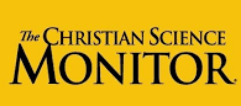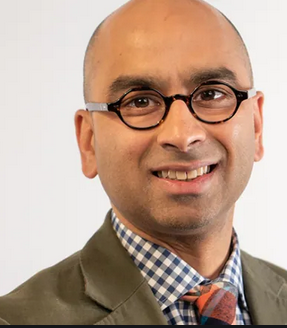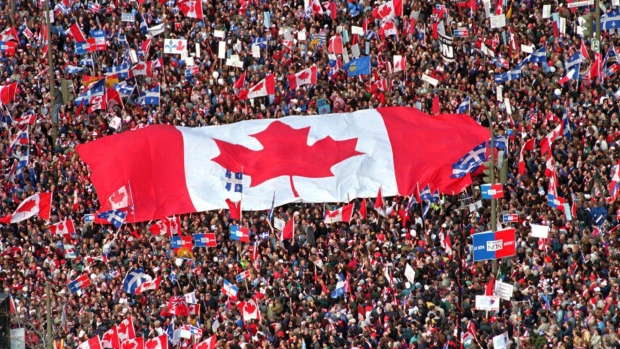 By Sarah Miller Liana
By Sarah Miller Liana
April 21st, 2021
BURLINGTON, ON
Reprinted from the Christian Science Monitor
The headline read:
‘Humbling’: Canada’s self-image slides in pandemic as US rebounds
Last year, as the first wave of the pandemic waned, Canadians were grieving from the toll of it all. Yet they were also relatively grateful – especially as they looked at their neighbor to the south.
 The pandemic amplified all the things Canada lauds itself for when it compares itself with the United States – as a nation that is a fraction of the size of the powerhouse next door often does. Its universal health care, a functional government, a communal spirit, and a rule-abiding culture were held up as reasons that case numbers stayed reasonably low. The U.S., meanwhile, bickered about masks and whether the virus was a hoax as cases surpassed anywhere else in the world.
The pandemic amplified all the things Canada lauds itself for when it compares itself with the United States – as a nation that is a fraction of the size of the powerhouse next door often does. Its universal health care, a functional government, a communal spirit, and a rule-abiding culture were held up as reasons that case numbers stayed reasonably low. The U.S., meanwhile, bickered about masks and whether the virus was a hoax as cases surpassed anywhere else in the world.
Now Canada finds itself amid a daunting third wave. And as the U.S. has flexed its muscle in an ambitious inoculation campaign, a counter-narrative is emerging among some Canadians that finds them unsettled but also humbled. It underscores a national inclination toward comparative assessment that can often blind the country to its own shortcomings on everything from gun violence to racism to health care – and make it too hard on both the U.S. and itself.
For months, Canada looked at the U.S. pandemic response and felt a sense of superiority. But now the narrative has flipped, and it’s pointing to the danger of building a sense of self-worth on comparisons.
“A year ago it was all about how America breaks the rules … while we are a ‘play by rules crowd,’” says Michael Adams, the president of the Environics Institute, which measures Canadian attitudes. Now the narrative centers around just how much of a global leader in science, manufacturing, and distribution the U.S. is while Canada waits.
“You need a balanced view,” he says. “We – the world and Canada at the head of the list – are benefiting from American innovation and an American can-do philosophy. You can’t just look at America through all the problems they have.”
For the first time, as the world enters year two of the pandemic, Canada has surpassed the U.S. on a per capita basis for the number of new COVID-19 cases, shaking its sense that its compliant culture or commitment to public health would protect it from the worst playing out south of the border.
Today, while many Americans start traveling and tasting a return to normalcy, many parts of Canada have entered their darkest moment. British Columbia has issued a “circuit breaker” shutdown. Quebec extended a months long curfew, ordering residents home by 8 p.m. in some cities like Montreal, leading to protests there.
Ontario, where 40% of Canadians live, has been hardest hit. This week it announced it was shuttering schools indefinitely. Hospitals have canceled all but emergency surgeries for the first time since March 2020 and are preparing field hospitals as record cases wallop the province.
Meanwhile, the U.S. has been far faster at providing shots to those who want them, with 38% of Americans receiving one dose versus 22% of Canadians. Canada is dependent on global supply chains for its doses, and is hoping to get more surplus from the U.S. All this feeds directly into Canadian perceptions of how they stand next to the U.S.
Aisles of non-essential goods are cordoned off at a Walmart store, as new measures are imposed on big-box stores due to the pandemic, in Toronto, April 8, 2021.

Randy Boyagoda: professor of English at the University of Toronto
“Canadians define themselves against the United States, and did so perhaps with greater satisfaction and justification over the past four years, and in particular during the dramatic playing out of the pandemic over the past year,” says Randy Boyagoda, a Canadian novelist and professor of English at the University of Toronto. “Now Canadians are forced to reconsider one of the fundamental features of their self-understanding.”
The founding idea of Canada lies in “peace, order, and good government.” Dr. Boyagoda saw proof of that reiterated in the orderly, yet slower, vaccine rollout where he is in Ontario. But is orderly always the best way forward if it gets in the way of dynamism and speed? “Eight months ago, we were taking great satisfaction in not having the same public health situation as in the United States. I think right now we take less satisfaction.”
The current situation is just a snapshot in time; Canada’s per capita death toll is still only a third of that of its neighbor. But the reversal comes as a punch, particularly because it involves health, one area where Canadians overwhelmingly agree their model is superior to the market approach taken in the U.S.
Kate Snider, a high school student in Toronto, is a Canadian American contemplating where to go to university next year: “Last year I was apprehensive about applying to any U.S. schools.” Right now “it seems to be a lot safer in the U.S.”
What Canadians fault most is what they see as a political response in many provinces that they find incoherent. The country’s current plight has spurred important debate, on topics ranging from the demise of Canadian manufacturing capability to provinces not offering workers paid sick leave. But there is also some sense of “humbling,” says Richard Nimijean, who teaches Canadian studies at Carleton University in Ottawa.
Rethinking the comparison
Comparing Canada with the U.S. often has a distorting effect on issues, whether it’s pandemic response, racism, police and gun violence, or poverty. Faring better than the U.S. on most measures can promote a complacency that makes it difficult to tackle internal problems.

Richard Nimijean: teaches Canadian studies at Carleton University in Ottawa.
Dr. Nimijean, for example, often talks about Canadian health care in his classes and asks if students would feel superior about their system if they compared it not with the U.S., but with Scandinavia. An answer, he says, “is not even in their mindset, because the U.S. dominates so much.”
“But in international comparisons of wealthy countries, Canada doesn’t perform that well. It performs better than the United States,” he says. “So we need to be careful about how we assert these ideas.”
Canadian activists trying to address discrimination in policing or racism generally also complain that their fight is discounted because problems here are overshadowed by incidents in the U.S. On the flip side, Niel Avendano, a Canadian in Toronto who lived in Texas for 20 years, says Canadians often assume that the U.S. is just the worst of what is seen on the nightly news, without any nuance.
Living next to the neighbor with the “10,000-square-foot house” compared with your “1,500-square-foot house” can also lend itself to outsize expectations, Mr. Avendano says. He is not surprised that a country a tenth of the size of the U.S. isn’t a leader on the world stage, and Canadians can have a “complex” for not being an economic, military, or diplomatic force. “Israel is not a world leader. Australia is not a world leader. Why is it we expect Canada can be?”
And despite a harsh third wave, Canadians remain firm in acknowledging that that shouldn’t take away all that Canada has done right, while the U.S. fights culture wars around the pandemic. Nelson Wiseman, a political science professor at the University of Toronto, says the pandemic has not been politicized like it has in the U.S. “I think Canadians can be too smug about themselves,” he argues, “but on the other hand, it is objectively the case that our society is, at the present time, more sane, more coherent, and just more together.”

“… our society is, at the present time, more sane, more coherent, and just more together.”



















There is nothing to be gained in comparing ourselves to the US, instead we should be grateful for our Healthcare system, continue to follow guidelines, get the vaccines when they are offered follow the safety guidelines and be grateful everyday for those essential workers who are tirelessly working to get us through this difficult time.